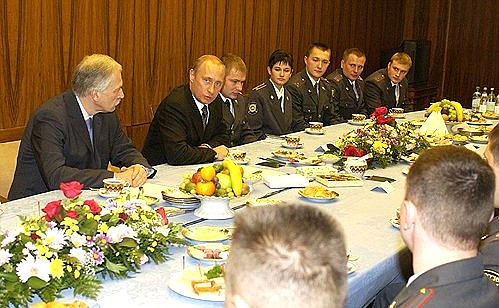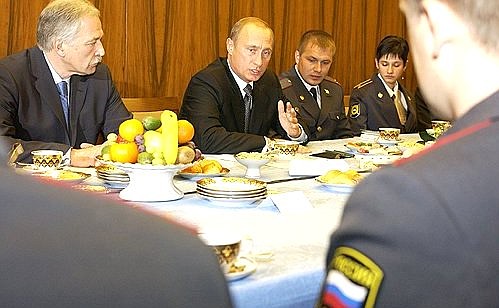Noting that people under 30 accounted for almost 50% of the Internal Affairs Ministry’s servicemen and civilian staff, the President said that it was a good sign: young people are no longer afraid to join a government service that is taxing and involves great risks.
The President answered numerous questions from young Internal Affairs Ministry officers, discussed their proposals on improving the Criminal Procedure and Administrative codes, the problems of corruption in the country, Russia’s migration policy and many other issues. He promised to issue directives to the Government and the Presidential Executive Office to address some practical problems of law enforcement raised by those present at the meeting.
Vladimir Putin stressed that the Russian leadership was committed to continue the fight against corruption regardless of the rank and financial status of the corrupt officials. He said that no country had a chance to overcome corruption and develop effectively unless it admitted the fact of corruption and openly challenged it. He admitted that much still remained to be done to eradicate corruption or initially at least to bring down its level.
The laws in a democratic country, the President said, must be tough but fair and the role of the law enforcement bodies was to secure that they are complied with.
The President gave assurances that the state would gradually but steadily seek to improve the material status of Internal Affairs Ministry officers.

